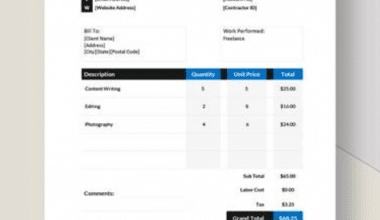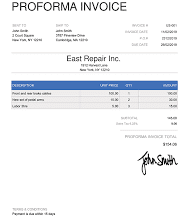Business interruption insurance compensates lost income in the event that operations are suspended due to direct physical loss or damage caused by a fire or natural disaster. This sort of insurance also covers operational expenditures, possible relocation to a temporary site, payroll, taxes, and loan payments. Standard business interruption insurance does not compensate policyholders if their company is forced to close due to a pandemic. Even some all-risk insurance policies exclude losses caused by viruses or bacteria. Business interruption insurance is frequently included in, or given as an optional addition to, business insurance packages that bundle many policies into a single cost. It can also be added as an add-on to building and contents insurance plans.
Business Interruption Insurance
Business interruption insurance (sometimes known as business income insurance) is a type of insurance that covers a company’s loss of income following a calamity. The revenue loss covered may be the result of a disaster-related company facility closure or the rebuilding phase following a disaster. It differs from property insurance in that property insurance only covers physical damage to the business, whereas business income insurance covers the income that would have been produced. This additional policy feature is applicable to all types of enterprises because it is intended to put a business in the same financial situation as if no loss had happened.
A business income insurance policy will normally cover the following:
Profits. Profits that would have been earned (based on financial accounts from previous months).
Fixed expenses. The property is still incurring operating expenses and other costs (based on prior costs).
Temporary site. Some plans cover the additional costs of relocating to and operating from a temporary location.
Fees for commission and training. The expense of providing training to the operators of the machinery replaced by the insurer following the insured occurrences is essentially covered by business interruption (BI) insurance.
Extra charges. reimbursement for reasonable expenses (other than fixed costs) incurred by the firm while the property is being repaired.
Ingress and egress of civil authorities. Government-ordered closure of a business location, resulting in a direct loss of revenue.
The duration of business interruption insurance coverage is regulated by the insurance policy and lasts until the conclusion of the business interruption period. Most business income insurance policies define this period as the time from the start of the covered risk until the damaged property is physically restored and returned to the same state as before the disaster.
Types of Business Interruption Insurance
Business interruption insurance (BI) is one of the most valuable types of commercial insurance. While property insurance covers physical loss or damage in the case of an insured danger, what about the impact of a claim on a business’s profits? A firm can be partially disrupted (resulting in a decrease in turnover) or completely disrupted. In either case, business interruption insurance can give compensation to put the company back in the position it would have been in if the loss had not occurred. There are two other types of business interruption insurance policies: contingent business interruption and extended business interruption. These are extra coverages that can be added to a basic business interruption policy as riders.
#1. Contingent Business Interruption (CBI):
Although coverage may be triggered by the occurrence of property damage, contingent business income insurance solutions protect against losses caused by supply chain disruptions. When a company’s supply chain is disrupted or shut down by suppliers, vendors, or other entities on which it relies, the company may be entitled to CBI compensation. These plans give cash to businesses to help them pay for employees, rent, and other operating expenses. CBI claims, like business interruption insurance claims, are frequently linked to physical damage or other commercial property claims.
#2. Extended Business Interruption (EBI)
This coverage covers the time between when a commercial property is repaired and when its income returns to pre-loss levels. The cost of business income insurance is determined by a number of criteria, such as the industry, the number of employees, and the amount of coverage required. The physical location of a business may also affect the total cost.
Cost of Business Interruption Insurance
The cost of your business interruption or income coverage may be determined by a number of factors, including:
- Industry
- Employees’ number
- The extent of coverage
Costs may also differ based on your region and the likelihood of a covered peril or loss. For example, if your company is located in an area prone to wildfires, the cost of business interruption insurance may rise. If your company is located in a region prone to natural catastrophes, such as hurricanes, you may have to pay more for insurance than firms located inland. The cost of adding business interruption insurance to your commercial property insurance varies greatly depending on the size of your company. If your company has expensive commercial property, operates in a high-risk industry, or generates a lot of money, you’ll have to pay more for business interruption insurance.
Coverage will be far less expensive if you run a small, low-risk firm. Business interruption insurance normally costs between $40 and $130 per month ($500 and $1,500 per year), although coverage for high-value firms with substantial liabilities can cost significantly more. Because a business interruption policy is typically obtained as part of a BOP package, estimating the policy’s standalone cost is difficult. A BOP will typically cost between $500 and $3,000 for most small firms.
How Is Business Interruption Insurance Calculated?
Any company’s operations can be halted or destroyed by blazes, quakes, extreme weather occurrences, traffic jams, terrorist attacks, and civil unrest. Property insurance covers physical damage to business premises caused by such catastrophes. Business interruption insurance coverage for small businesses protects a company’s net profits and expenses for a specified period after a loss-making occurrence. The coverage should restore the company’s trading position as if the loss had never occurred.
A Step-By-Step Guide to Calculating Business Interruption Insurance
- Set the indemnity period length by visualizing the worst-case event. Create a realistic picture of how long it will take to rebuild the business. Include potential delays in the issuance of rebuilding permits by local government officials. Include an estimate of the time required to retrain critical personnel as well as the lead time for procuring new equipment. When estimating the time required, keep in mind a range of issues, such as construction codes and required permissions.
- Include an estimate of the time required to retrain critical personnel as well as the lead time for procuring new equipment. A minimum indemnity length of 24 months is typically recommended by financial experts.
- Calculate the costs of moving your business to and operating it from other temporary locations during the indemnification period. This could include local craftsmen like hairdressers, plumbers, and electricians, as well as modest office-based enterprises like real estate agents or business intermediaries. Include rentals, equipment rental, salary, employee benefits, workers’ compensation, and other employee allowances for temporary employees.
- Determine the business’s estimated gross profits over the indemnification period. This is calculated by subtracting predicted changes in inventory values, business material use, and freight expenses from expected gross revenues.
- Calculate your company’s estimated savings during the indemnification period. These are costs that will not be incurred as a result of the property loss. Maintenance charges, building services, and utility payments are among them.
- Check your lease agreement with your business landlord to see if you are responsible for building rental even if it is demolished during a loss-making event. If this is the case, estimate the rentals throughout the indemnification term.
Business Interruption Insurance Cover
While you may keep precise business records and follow all of the best business procedures to a tee, there are certainly outside factors that might wreak financial devastation on your small business. Business interruption insurance can assist in financially protecting your company if you are forced to close due to an unanticipated problem covered by your policy.
Business interruption insurance covers a company’s operating expenses as a result of a covered problem. Theft, wind, fire, lightning, and falling items are the most common risks covered by business interruption insurance.
Operating expenses that may be covered include:
- The amount of money your company would make if it were open for business.
- Monthly payments for the company space’s mortgage, lease, and rent
- Loan payments for the company
- Taxes
- Payroll
- If you need to relocate temporarily, you will incur relocation charges.
- Employee training expenses to learn new equipment
What Is the Example of Business Interruption?
Business interruption insurance pays for rental and lease payments when your company is not producing money. For example, a fire ruins an electronics store, rendering it unable to serve consumers. While the company is closed for renovations, it must continue to make store rental payments.
Is Business Interruption Insurance Part of General Liability?
A business owner’s policy often includes business income insurance (sometimes known as business income coverage) as well as general liability and property insurance. It can, however, be obtained as part of a more comprehensive, dedicated property insurance policy.
How to Calculate Business Interruption Insurance?
- Basic Formula # 1: Lost Sales – Expenses: saved as a result of not acquiring the sales (also known as the “top-down” approach)
- Basic Formula # 2 Net Income + Continuing Expenses + extra/additional expenses = business loss (also known as the “bottom-up” approach)
What Is Another Name for Business Interruption Insurance?
Business interruption insurance, often known as business income insurance, is a type of insurance that pays for lost income. This could be possible if your business is forced to close temporarily due to a fire, natural catastrophe, or other incident.
What Is the Other Name for Business Interruption Insurance?
Business interruption (BI) insurance, often known as business income insurance, protects small firms against monetary losses caused by periods of interrupted operations when a covered event happens and causes physical property damage, such as a fire.
What Are the Four Causes of Business Interruption?
Business interruption can occur owing to a variety of circumstances, including storm-related property damage, machinery breakdowns, labor conflicts, cyberattacks, and other risk occurrences.
What Type of Risk Is Business Insurance Cover?
It merely provides coverage and protection against certain risks and losses. Typical hazards you can insure against include fire, theft, vandalism, workers’ compensation, legal costs, third-party injury or property damage, and company disruption.
What Are the Reasons for Business Interruption?
Fire and flooding are two of the most prevalent causes of business interruption, but you can protect yourself against both by following best practices. Your fire risk assessment will identify any places that are especially dangerous, allowing you to reduce hazards.
Conclusion
While business interruption insurance is a good option for most small business owners, it can be a critical coverage type for businesses that rely on a physical location or assets (like machinery or equipment) that could be affected by problems like fire, theft, wind, lighting, and falling objects. This includes businesses such as restaurants, retail stores, salons and spas, pet groomers, and yoga studios.
Related Topics
- SMALL BUSINESS INSURANCE TYPES: Meaning, Coverage, Types, and Requirements
- ILLINOIS SMALL BUSINESS GRANTS: The Top Picks
- 4 WAYS TO PROTECT YOUR BUSINESS FROM FIRE DIASTER
- Business Continuity Plan: Why Is It Important






